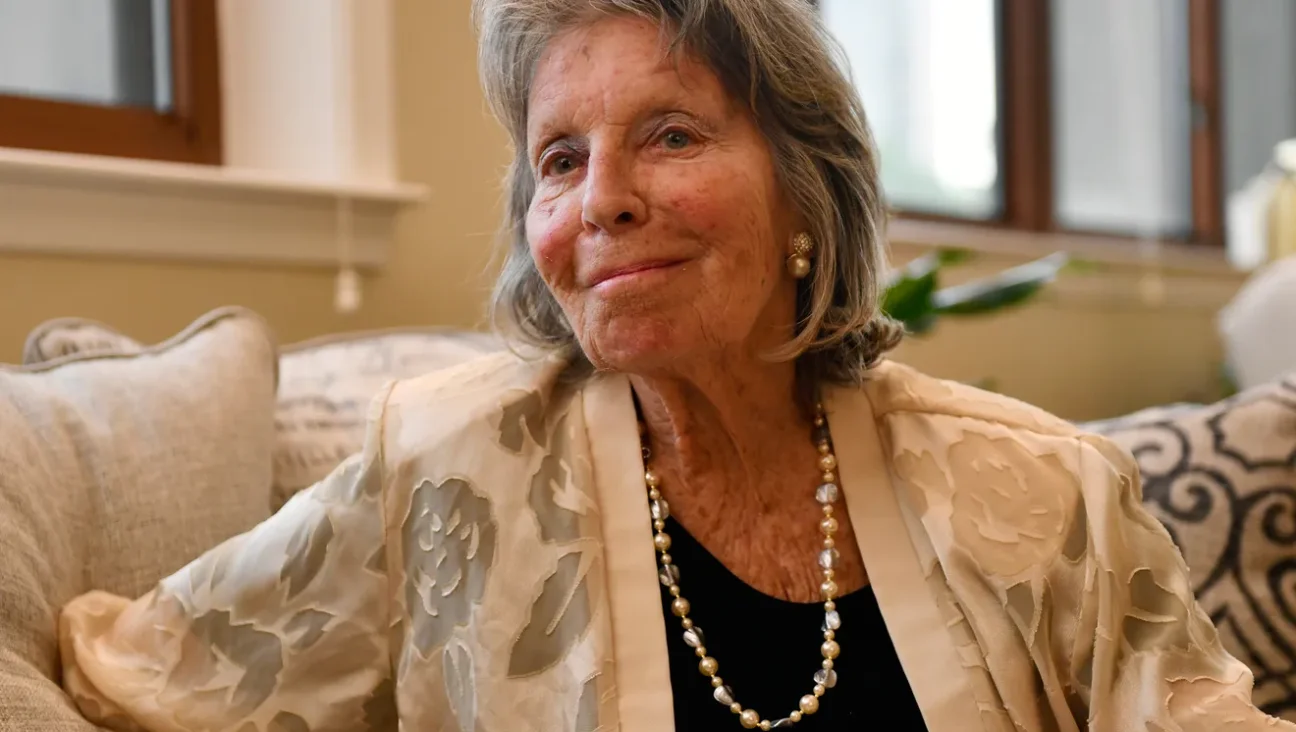Why Is This Interfaith Group Pushing For Sanctions Against Qatar?

Rabbi Yechiel Eckstein arriving in Israel with the first group of immigrants brought by the International Fellowship of Christians and Jews, Dec. 22, 2014. Image by International Fellowship of Christians and Jews
Wading into the Middle East’s most recent controversy, the International Fellowship of Christians and Jews has launched a campaign aimed at increasing pressure against the Gulf nation of Qatar.
The group, which raises more than $140 million a year from Christian donors in the United States for Israelis in need, launched an ad campaign against Qatar because of its support for Hamas and its harboring of Hamas leaders. The full-page ads in USA Today on June 19, and a planned TV campaign and a lobbying effort, accuse Qatar of supporting the Muslim Brotherhood, Hamas, the Taliban and elements of Al Qaeda. “Qatar’s actions have been deeply detrimental to the cause of Middle East peace,” the group’s founder and president, Rabbi Yechiel Eckstein, wrote in a letter to President Trump, calling the Gulf nation “among the worst offenders” in the region. The campaign urges Trump and Congress to “put political and economic pressure on Qatar, including sanctions, if necessary.”
In recent weeks, Qatar has been the subject of a massive isolation drive led by Saudi Arabia and other neighboring Gulf countries. The move was a result of Saudi’s discontent with Qatar’s close ties with Iran, and with its support for terror groups acting against the interests of the kingdom and its allies.
But the embargo declared on Qatar has raised controversy, and even though Trump praised it, his secretary of state, Rex Tillerson, called for easing of the siege that has effectively cut off Qatar from trade with its partners, except for Iran.
None of the major Jewish or pro-Israel organizations have taken a position on the Qatar dispute.
“We don’t take our action from what is currently U.S. or Israeli government position,” Eckstein told the Forward in an interview. He said that Qatar “falls in the middle ground” of “on the one hand supporting Hamas, and the other, having U.S. military bases” on its territory.
While most of the fellowship’s work has been focused on raising funds for populations in need in Israel, it also has an advocacy arm that in the past has mobilized supporters in opposition to the Iranian nuclear deal. The Qatari issue, however, has not captured the attention of the pro-Israel community, and it is not clear whether there is a consensus behind the need to support the Saudi-led embargo.
Eckstein, who praised Trump’s “bold new vision for combating Islamist extremism in all its forms,” said the new anti-Qatar campaign will reach more than 16 million people and will utilize the fellowship’s broad grassroots network to increase pressure on Qatar. “This will also be a trial run for our ability, [that] no one else has, to draw out tens of millions of people on an issue,” he said. “There is no organization — not AIPAC [the American Israel Public Affairs Committee], not CUFI [Christians United for Israel] — that can turn around such a campaign in four days.”
Contact Nathan Guttman at guttman@forward.com or on Twitter, @nathanguttman
A message from our Publisher & CEO Rachel Fishman Feddersen

I hope you appreciated this article. Before you go, I’d like to ask you to please support the Forward’s award-winning, nonprofit journalism so that we can be prepared for whatever news 2025 brings.
At a time when other newsrooms are closing or cutting back, the Forward has removed its paywall and invested additional resources to report on the ground from Israel and around the U.S. on the impact of the war, rising antisemitism and polarized discourse.
Readers like you make it all possible. Support our work by becoming a Forward Member and connect with our journalism and your community.
— Rachel Fishman Feddersen, Publisher and CEO





















